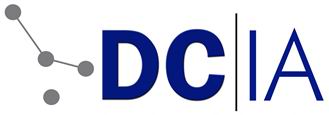|
DCIA's
Founder Derek Broes was invited to submit testimony to the
United States House of Representatives Committee on Energy & Commerce,
Subcommittee on Telecommunications and the Internet for the
hearing entitled "Ensuring
Content Protection in the Digital Age" on April 25, 2002.
Note: DCIA's initial working title was Distributed Computing Standards
Coalition (DCSC). The new name, DCIA, was established at its June 30,
2003 organizational meeting.
Here is the text of that testimony.
Chairman Upton, Ranking Member Markey, and members of the
Subcommittee,
I am Derek Broes, Founder of the Distributed Computing Standards Coalition.
The DCSC is a non profit organization that has been formed to establish
ethical and technical standards and practices for decentralized Internet
computer networks, commonly referred to as peer to peer networks. Our
membership is open to copyright owners, software developers, product
manufacturers, the telecommunications industry and consumers.
The mission of the Coalition is to bring the benefits of distributed
computing to their full potential while protecting consumer, business,
and intellectual property rights, while ensuring interoperability and
maintaining the highest standards of security, availability and quality
of service.
The DCSC offers its members ethical and technical working groups,
and a forum for information, commerce, communication, and collective
understanding for the public and private sector as well as to governments
and interested organizations around the world.
The DCSC is being established to answer the urgent call of major copyright
holders, including the television, film, and music recording industries
and the desire of major computer hardware and software manufacturers
for inter-industry cooperation to ensure that digital content can be
distributed to consumers through means that are efficient and secure
from theft.
A letter recently sent by a group of motion picture CEOs to a group
of hi-tech industry CEOs said: “Unauthorized peer-to-peer file
distribution…harms existing theatrical, home video and subscription
outlets, and discourages legitimate on-line services which cannot sell
access to movies, music and other entertainment content that are available
for free.”
The letter goes on to call for the creation of a coalition in which
they may “work together in a consensus-based and cooperative
fashion to find solutions to this problem that is threatening the very
essence of our business. We thus propose the establishment of a new
high level working group, independent or as part of an existing process,
to find technical measures that limit unauthorized peer-to-peer trafficking
in movies, music and other entertainment content.
Recognizing that the United States Congress is watching the attempts
at self regulation carefully, the letter states that “Establishing
such an accountable and credible working group will better enable us
to meet the call of Congressional leaders for regular reports to the
Congress as to the state of our private negotiations.”
Thus, the DCSC is being formed to address these issues, inviting the
full participation of the interested parties to swiftly move to find
resolutions to the challenges at hand.
My diverse background encouraged me to establish and devote my time
and full attention to the DCSC to represent the variety of views and
interests held by all parties.
My experience in the entertainment industry helps me to understand
the concerns of both the technologists and the content providers you
are hearing from today.
As the former CEO of Vidius, Inc., I built an Internet security company
that offers services to track and monitor networks for intellectual
property loss over peer to peer networks and sells sophisticated tools
to mitigate that loss. Vidius’ diverse team was a blend of entertainment
industry executives and technologists and a software development team
made up of veteran military scientists. As a media technologist, I
launched the very first all digital motion picture and television recording
and editing studio in Los Angeles. I have produced music and films
and represented Academy Award winning artists. I am also a copyright
owner.
The primary issue surrounding secure, efficient and reliable content
distribution over the Internet is that there is no legitimate framework
to follow. Indeed, the true success stories for content distribution
are reserved for peer to peer networks that are widely seen as operating
in defiance of copyright law. Despite a desire on the part of many
in the peer to peer community to achieve legitimacy, these networks
have no acceptable framework or forum to attain an authorized status.
With no legitimate alternatives, peer to peer networks produce no paying
customers, only pirates. We must all work together to develop the solutions
to turn pirates back into customers.
As a case in point, Los Angeles-based Altnet, Inc. is working closely
with the peer to peer network KaZaA, that reaches more than 50 million
users, to implement a secure environment for the authorized and paid
distribution of digital media content. These are not rogue networks
seeking to operate outside the law, rather they are begging for cooperation
and standardization.
The DCSC strongly advocates and will work closely with its membership
to build the necessary framework to address the vital issues surrounding
sanctioned peer to peer distribution of copyrighted content including;
creating ethical bylaws, standardizing licensing and royalty models,
adopting appropriate security measures, and setting universal standards
for quality of service.
* * *
I submit to the subcommittee that both the desire and the technology
exist to ensure content protection in the digital age. The DCSC is
committed to this mission and offers its expertise to the subcommittee
for this and other hearings in the future. I urge the committee and
members of congress to encourage all industries concerned and affected
by this issue to lend their support to the DCSC so that we may solve
this problem together.
Thank you, Mr. Chairman, for the opportunity to have participated
in this most important hearing.
Sincerely,
Derek Broes
Founder
Distributed Computing Standards Coalition
|



